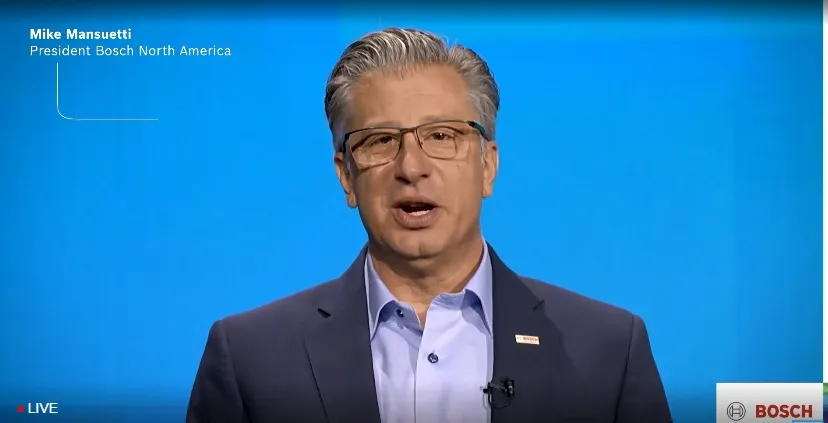
Bosch has announced plans to develop mobility products that will have no negative impact on the global climate and urban air quality at CES 2021 this week.
Speaking at the digital event, Mike Mansuetti, president of Bosch North America, said the company is developing a full range of power train solutions.
“From combustion engines, to battery electric power trains to fuel cells that power everything from e-bikes to trucks, for more than 10 years, our e-bike system division has been setting new standards with drive systems consisting of drive units, batteries and smart control panels for electric bicycles.”
Mansuetti revealed the latest generation of its Nyon e-bike computer control panel offers on-board navigation, topography-based range estimates and digital locking.
Elsewhere in the session, Bosch chief technology officer Michael Bolle elaborated upon the company's focus on advancing AIoT, an area where artificial intelligence (AI) meets Internet of Things (IoT).
“These two specific parts are strongly intertwined with AIoT and data often holding the technological key to enable greater sustainability,” he said.
Bolle explained that Bosch's approach to AI focuses on the world of objects and things and their interaction with their environment, such as with an automotive emergency braking assistant.
“In these cases, AI is not telling machines what people are doing, but explaining the critical roles to machines,” he continued.
“In this way, we can enable intelligent behaviour and optimise the way the machines and things work.”









